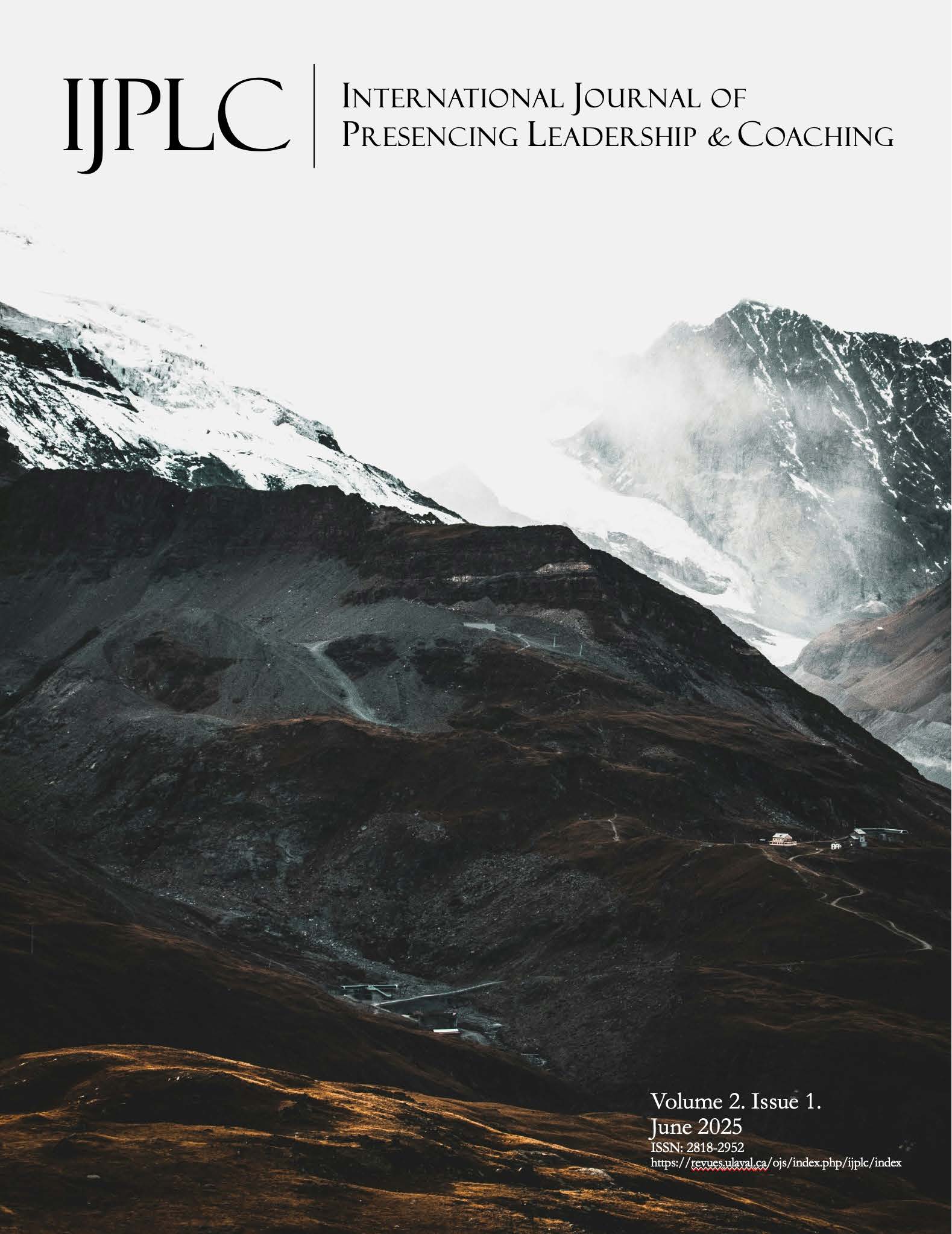Authors
-
Markus Peschl
Professor, University of Vienna
Author
-
Peter Hochenauer
Ph.D. Candidate, University of Vienna
Author
-
Gloria Bottaro
Ph.D. Candidate, University of Vienna
Author
-
Katharina Roetzer
University of Vienna
Author
Keywords:
presencing, theory u, transformational leadership, 4E cognition, transformative learning, innovation and knowledge creation, ontological and process ontology approaches, fourth-generation coaching
Abstract
In a world characterized by volatility, uncertainty, complexity, and ambiguity (VUCA), traditional leadership and innovation strategies turn out to be insufficient. This paper explores how leaders can develop a future-driven mindset through the Theory U framework and, in particular, the process of presencing. Grounded in recent theoretical frameworks from cognitive science (4E/enactive cognition), we understand presencing as an embodied transformative learning process. We examine how embodied practices and social interactions foster the ability to sense and act upon emerging future potentials during presencing. Drawing from longitudinal empirical research in higher education settings, we analyze the role of leaders as facilitators for supporting individual process of presencing and, crucially, how to collectivize these experiences of individual transformations as a team in order to create sustainable innovations. Furthermore, we derive concrete embodied practices that enable individual and collective sense-making, key leadership skills, and mindsets that enable organizations to co-create a sustainable future.
Author Biographies
-
Markus Peschl, Professor, University of Vienna
Markus F. Peschl, Ph.D is professor of cognitive science, innovation, and philosophy of science at the University of Vienna, Dept. of Philosophy/Vienna Cognitive Science Hub. He has spent several years as post-doc at the University of California in San Diego and at other international universities. His areas of research and expertise include innovation and alternative approaches to creativity, cognitive science (4E/enactive cognition), organizational theory and strategy, design, and spaces for knowledge- and innovation work. Working in the field of radical innovation, he has developed the concepts of Emergent Innovation and Enabling Spaces which he understands as a form of “socio-epistemic engineering” in the context of an extended and enactivist approach to cognition.
Markus is head of the OCKO – Organizing Cognition in Knowing Organizations Research Group (https://ocko.univie.ac.at/) as well as co-founder and CSO of the theLivingCore Innovation and Knowledge Architects (https://www.thelivingcore.com/en/). M. Peschl holds several visiting professorships (Berlin, Bratislava, etc.) and has won several prizes for his innovative approaches to teaching and learning. He has published 6 books and more than 170 papers in international journals and collections. For further details see: https://homepage.univie.ac.at/franz-markus.peschl/
-
Peter Hochenauer, Ph.D. Candidate, University of Vienna
Peter Hochenauer, Ph.D candidate is at the Department of Philosophy at the University of Vienna, working at the intersection of transformative learning theory and enactive cognitive science to support problem-focused, inter- and transdisciplinary teams. In particular, he focuses on extra-rational factors (such as intuition, emotion, and imagination) in mutual learning processes for the joint integration of different ways of knowing (experiential, presentational, and practical) to address wicked problems. He holds a master’s degree in cognitive science and a bachelor’s degree in philosophy. He is the former international program coordinator for the joint Middle European interdisciplinary master’s programme in Cognitive Science (MEi:CogSci) at the University of Vienna. Originally trained in electronics and computer engineering, he has 10 years of experience as a software architect/engineer and IT consultant in the private sector.
-
Gloria Bottaro, Ph.D. Candidate, University of Vienna
Gloria M. Bottaro, Ph.D. Candidate is an innovation researcher. She teaches at the University of Vienna in the field of innovation in the extension curriculum “Knowledge Creation” at the Department of Philosophy. Her research focuses on radical constructivism and innovation, with a special focus on emotions and group dynamics.
-
Katharina Roetzer, University of Vienna
Katharina Roetzer, MSC has a background in art and design (VET diploma), Sociology (BA), and Cognitive Science (MSc) with a focus on studying and designing socio-emotional interactions with educational technologies. She has further education in Data Science and Computational Social Science and has been working as an independent researcher and trainer in the area of innovation and data analysis (qualitative, quantitative, mixed methods, big data) since 2014. Her work experience encompasses international industry projects (AT, DE, SK, CH, GB) as well as academic research and teaching in Austria. Currently, Katharina is working in the field of AI literacy.
ORCID: https://orcid.org/0000-0003-1511-875X
How to Cite
HOW TO FACILITATE PRESENCING AS AN EMBODIED TRANSFORMATIVE LEARNING PROCESS: The Role of Embodied Practices in Future-Oriented Leadership in Innovation Teams. (2025).
International Journal of Presencing Leadership & Coaching,
2(1).
https://doi.org/10.69470/56ndm426



